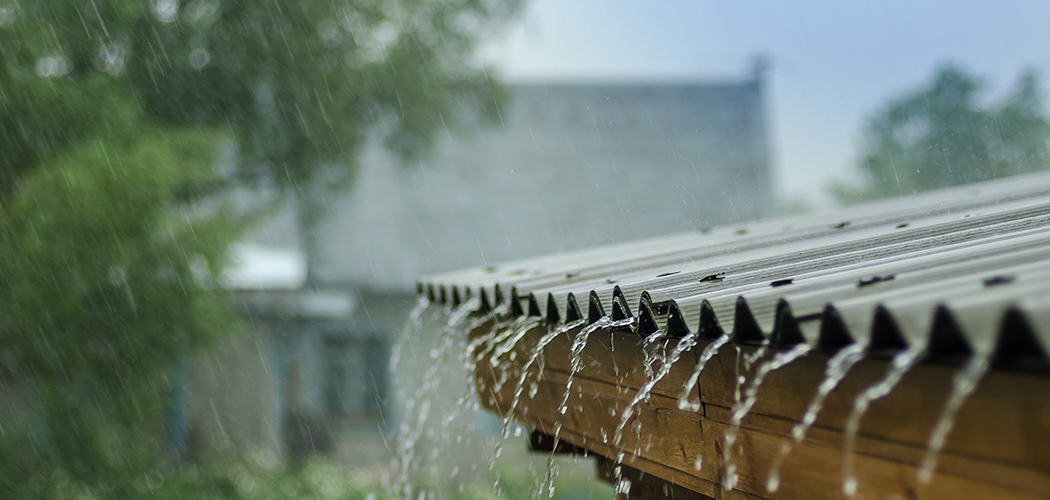[title subtitle=”words: Marla Cantrell”][/title]
The rain that morning made everything worse. Afterward, steam rose from the road that whipped by my house, from the gravel that made up my driveway, from the metal roof on my garden shed.
“Global warming,” Travis said, pointing at the sky that was still the gray of old ladies’ hair. Earlier, he’d driven by, seen me in the yard, sweat-ridden, pushing my rickety mower across the still-wet grass. He’d honked at me, and I’d caught a glimpse of him, the realization of who he was made me shaky with something, maybe desire, maybe a little hurt, I’m not sure. Then, he’d gone to the Quickie Pickie and come back with a six pack and a smile. Now, I was sitting on my screened-in porch with him, remembering a trip we’d taken back when we’d snuck out of our mamas’ houses. On that trip to Tennessee, a different kind of heat that had risen, had traveled through me, had made us both forget our manners for an entire weekend.
I turned the longneck up, drank the bitter beer, and said, “It’s August in Arkansas. Nothing global about it. It gets hot, cold air rolls in, the thunder rolls.” I didn’t know a thimbleful of facts about climate change, but something made me want to poke at Travis, made me want to see the color rise to his cheeks and watch his brow furrow. Water beaded on the outside of the amber bottle. I drank, then held the bottle against my cheek, the shock of cold slowing down my racing heart for a second.
Travis looked away, disgruntled maybe, I don’t know. He had blond hair and blond eyelashes. He had gladiator arms and farm-hand thighs that strained against the fabric of his jeans. “I didn’t stop by to argue with you, Twyla,” he said, and then looked at me. He leaned back in the wicker rocker, and the chair creaked. “You still think about Memphis?” he asked.
There were puddles in my yard, and in those puddles, newly cut blades of grass gathered in odd patterns that reminded me of woven baskets. “No,” I said, “I do not,” and Travis smiled at me, showed his teeth, straight as soldiers in a row, perfect.
The hair on his tanned arms was nearly red, strawberry blond, I guess you’d say. He didn’t have a tattoo on him, not since I’d last checked anyway, back when we were nineteen, but I stared at the spot where I thought he needed one, there on his right bicep where the muscle strained the sleeve of his T-shirt. I had a tattoo that read, It’s Always Something, inked across my right hip bone. It was what my grandpa used to say at times of disappointment, when his pickup broke down, when he couldn’t pay the light bill, when my grandma up and left with Grandpa’s second-cousin who owned his house trailer outright.
I got the tattoo the day of his funeral three years ago, after the service officiated by a preacher who didn’t appreciate Grandpa, who couldn’t understand the complexity of a man who was equal parts saint and sinner.
Travis stretched his legs. “I hope that’s not true.” He opened a second beer, tossed the cap on the small table that rested between us, took one sip and then abandoned it. I pushed a lock of damp hair from my forehead, wiped my face with the tail of my shirt.
Another inning of rain started. “That was ten years ago,” I said and shrugged. “Ancient history.”
“Best weekend of my life,” Travis said.
“Wasn’t good enough to keep us together. Wasn’t good enough to keep you from moving across the country for years and years and years,” I said, and my hand went to my neck, a nervous habit I’ve had for as long as I can remember.
“I was a fool.”
“I hope you’re not waiting for me to contradict you.”
“I’m back now,” Travis said. “Been back for almost a week. I’ve been trying to get up the nerve to call you, and when I saw you in your yard, the sight of you hit me like a meteor. I could almost see you standing on the sidewalk in front of your house waiting for me the night we left for Memphis, your backpack slung over your shoulder. That top you wore was made of white lace. The jeans you wore,” he said, and then he whistled. “You looked like a girl from a movie.”
The wind picked up, blowing the weeping willow that stood a few yards from the porch. When the tree swayed, it looked as if it was doing a hula dance. “Mama’s opinion of me changed after that,” I said.
Travis looked at his feet, and I changed the subject. “Grandpa’s house had a tin roof. The house sounded like a drum when it rained.” I pointed to the porch’s ceiling. “It sounded better than this. Rain on a tin roof is enough to still your mind. I stayed at his house for a whole year after he died just for the nights when the storms blew in, just for a break from all that thinking.”
“Broke my heart to hear about your grandpa,” Travis said. “But life and death, Twyla. Nobody can stop either one.”
“He was a good man,” I said, my voice rising the way it does when my heart’s hurting. “Kept his promises. Didn’t run to and fro. He understood obligations.”
“Salt of the earth,” Travis said, then picked up the beer cap from the table and flipped it like a quarter. “When I was a kid,” he said, “me and my brothers used to play in the rain. Mama’d have a fit. All that mud. We’d come back from the pasture covered in it, and she’d fuss something awful. We’d strip down on the front porch. She’d hose us down before she’d let us inside.”
“How’s your mama doing?” I asked, and Travis laughed. “Ornery as ever. Has a man friend in Ozark who has an RV. She’s gone more than she’s home.”
I raised my arm and sniffed, hoping Travis wouldn’t notice. I smelled of sweat and lavender scented lotion. I’d read a story, years ago, about men in war, and how they’d ask their women not to bathe after they learned they were finally coming home. Something about the scent marked those women as theirs. I still remembered the way Travis smelled, lying on his belly, me on my back, his arm across my waist. He smelled like honey and the fields where he worked gathering hay. His hair was silk. The memory made me want to reach out and run my fingers through his shock of hair, and I felt heat rise to my face.
My phone rang. I picked it up and glanced at it. There was a guy I was seeing, kind of half-heartedly, and he’d call whenever he was bored, whenever he thought I was dismal enough to let him come over. Travis looked at my hand, at the name ‘Jimmy’ lighting up the phone’s screen. I hit the ‘ignore’ button and laid the phone down.
The ceiling fan was unbalanced and made a whomping sound as its blades circled. Travis rose, his muscles shifting as he stood. He took my hand, and I let him, and then he opened the screen door and led me onto the steps.
The rain felt tropical, warm, exotic. Travis asked me to sit, and when I did, he unlaced my tennis shoes and slipped them off my feet. He tugged off my socks, and then he sat beside me and took off his shoes.
We stepped onto the grass. The downpour soaked my shirt, my shorts, my hair. Travis found a puddle and jumped in it, the water ricocheting around him. I found another puddle and did the same. My neighbor, Isabelle, who’s sixty and worries as a hobby, opened her kitchen window, and yelled, “There’s still a storm warning, y’all. You could get killed out there!”
Travis laughed, and Isabelle slammed her window shut. As if by design, lightning hit, far away, but still close enough to make me jump. Thunder followed, a warning too late for anyone in the lightning’s path.
In three steps, Travis was at my side, wrapping his arms around me. “In Memphis,” he said, “you wore strawberry lip gloss. You sent me a postcard that got home before I did. You didn’t like Beale Street, but you loved the way the moon looked from the balcony of our room. You tried grits and hated them. You ate barbeque and loved it. You carried a sack full of change in case we ran out of money.”
A warning too late is still a warning, that’s what I thought in the wake of the thunder. But I couldn’t ignore the quickening inside me, the rush of something lost returning. A million stories have been written about prodigals coming home again, the doors of home flung open, a feast prepared.
“Come inside,” I said, my voice insistent. And that’s when he surprised me. “No,” Travis said. “Not now. Not yet. I’m going home. If you’ll let me, I’ll be back at seven, and I’ll take you out on the town. Whatever you want to do, that’s what we’ll do.”
In my bedroom, I surveyed my closet. I looked good in red, that much I knew, and I pulled out the dress I’d worn to a New Year’s Eve party a few years back. In the shower, I washed my hair slowly, deliberately, and left the conditioner on an extra two minutes.
Dressing that night felt like a ceremony. Eyeliner, lipliner, blush. I put them on carefully, and I surveyed my face as if it were someone else’s. At seven exactly, Travis knocked on my door. I’d put my hair up, but before I answered my door, I pulled one curl free, letting it drop beside my ear, beside my earring that flashed gold when it caught the light from the vanity.
“You still think about Memphis?” Travis had asked just hours before. The answer was yes, I thought about Memphis. I thought about standing on the sidewalk in this one-horse town waiting for the man I loved. When I’d gotten in his car, when he’d put his hand on my knee, everything around became royal. Even the traffic light in town had seemed like three gemstones stacked one on top of the other.
Travis knocked a second time. When I opened the door, he caught his breath, smoothed the fabric of his slacks, smiled. He helped me into his truck, taking my hand as he did it, and even before he asked me where I wanted to go, I think he knew we were heading to Memphis.




